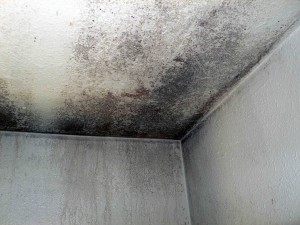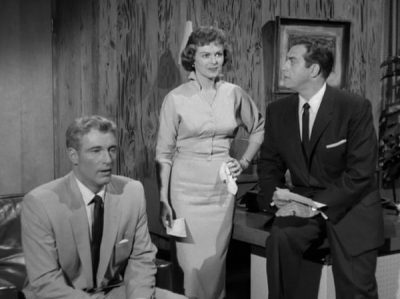
A Cave By Any Other Name
A Cave By Any Other Name
When my landlord voluntarily replaced the roof on my (his) building a couple of years ago I was blown away. It was the first time in nearly 30 years of my life as a tenant that this happened. It was the first time in my career as a tenant rights lawyer that I’d heard of such a thing. Usually when my clients complained about a leaking roof, the landlord’s response, after suggesting that the tenant empty the buckets more often, is to jab some tar in the hole. Every landlord has one…no, not a tar hole…an implied warranty of habitability.
The warranty of habitability, the landlord’s guarantee that he will provide you a unit with more amenities than a cave or a cardboard box, is implied in every lease, written or verbal. Unfortunately, many landlords think their properties should perform like an annuity—that the rent should just roll in, like interest, while the landlord does nothing to maintain them. After all, the lord already did the work; he bought the property. I can’t count the number of times tenants have told me when they request repairs that the landlord tells them they can fix it themselves. Or better yet, tries to charge them for repairs he has the legal duty to provide.
California Civil Code §1941.1 provides a list of minimum requirements for a habitable or tenantable dwelling. In other words, if the landlord doesn’t provide or fix the items listed in the code, he’s breaking the law. He is breaching the implied warranty of habitability in violation of your lease, whether it’s oral or written.
 Roof leaks are one of the most common tenant complaints. For some reason landlords, especially the do-it-your-self types would rather spend thousands of dollars and countless hours smearing Blackjack on the roof rather than replacing it. These Cheese Balls spread more tar, one gallon at a time, than the Exxon Valdez. Any professional roofer will tell you that you can’t permanently fix a leaking roof in that manner. I had a client who successfully withheld rent for over two years because the landlord would not replace the roof and instead tried to dab it with tar. Don’t try this without legal representation.
Roof leaks are one of the most common tenant complaints. For some reason landlords, especially the do-it-your-self types would rather spend thousands of dollars and countless hours smearing Blackjack on the roof rather than replacing it. These Cheese Balls spread more tar, one gallon at a time, than the Exxon Valdez. Any professional roofer will tell you that you can’t permanently fix a leaking roof in that manner. I had a client who successfully withheld rent for over two years because the landlord would not replace the roof and instead tried to dab it with tar. Don’t try this without legal representation.
Roof leaks are also a major cause of mold and mildew, but when you complain about the mold, the landlord invariably will tell you to open the window while you’re taking a shower. Which shower? The one from the ceiling in the living room? The health risks from certain kinds of mold are well documented.
 Cracks in your ceiling and peeling paint are another indication of a roof leak. Peeling and chipping paint on the window frames can also indicate water leaks, if not from the roof, the windows and window frames. In old buildings, peeling paint can be a big problem because the paint chips contain lead. Though lead started to be removed from paint in the 1940s, only building built after 1978 are relatively free of it. The layers of paint from the past do not simply disappear. When the pail peels the old lead layers become exposed and introduce lead into your environment. Lead is especially harmful to children and can cause many health problems including brain damage.
Cracks in your ceiling and peeling paint are another indication of a roof leak. Peeling and chipping paint on the window frames can also indicate water leaks, if not from the roof, the windows and window frames. In old buildings, peeling paint can be a big problem because the paint chips contain lead. Though lead started to be removed from paint in the 1940s, only building built after 1978 are relatively free of it. The layers of paint from the past do not simply disappear. When the pail peels the old lead layers become exposed and introduce lead into your environment. Lead is especially harmful to children and can cause many health problems including brain damage.
Tenants often come to me complaining about a lack of heat. The heater goes out in the unit. The tenant informs the landlord and the landlord empathetically shrugs his shoulders and offers to provide the tenant a space heater rather than repair or (horror of horrors) installing a new heater. Never mind that your electricity bill jumps to $700.00 a month. There are actually some landlord lawyers who, with a straight face, will tell you that this is a viable alternative. It is not. Civil Code §1941.1(d) is clear that a unit is untenantable if it lacks “heating facilities that conformed with applicable law at the time of installation, maintained in good working order.” Space heaters are not facilities and have never, ever conformed with applicable law.
Old buildings often have plumbing problems. When you inform the landlord that your apartment has a six inch layer of excrement on the floor because the plumbing backed up while you were away for the weekend, the first thing the landlord asks is, “Have you been flushing tampons down the toilet?” In one of our cases at trial, the landlord testified that the hardwood floors were damaged in the when the kitchen flooded. Of course, he blamed our clients because they had the audacity to put cooked spaghetti in the garbage disposal. The last time I checked most dwelling units are required to have functional indoor plumbing. Sewer backups and leaks are the landlord’s responsibility.
 I spoke to a tenant recently who showed me an email in which the landlord stated that rats in the apartment was just a consequence of urban living. What? Like the bubonic plague? Yes, millions of rats live here, but they are not supposed to be able live with you. If you have breaches in the building like holes in the walls, rats come in. And you never get the adorable ones who’ll teach you how to cook like in the movie Ratatouille. You get the rats that carry disease and crap and pee all over the place. It is the landlord’s responsibility to remove them, period.
I spoke to a tenant recently who showed me an email in which the landlord stated that rats in the apartment was just a consequence of urban living. What? Like the bubonic plague? Yes, millions of rats live here, but they are not supposed to be able live with you. If you have breaches in the building like holes in the walls, rats come in. And you never get the adorable ones who’ll teach you how to cook like in the movie Ratatouille. You get the rats that carry disease and crap and pee all over the place. It is the landlord’s responsibility to remove them, period.
This ain’t Florida, thank god. You don’t just assume that cockroaches will be living in your apartment. Cockroaches also carry diseases. And they’re just plain disturbing. They are very difficult to eradicate, but it is the landlord’s responsibility to get rid of them.
What have I missed? Windows that rattle and leak cold air; unfinished repairs that leave exposed walls; smelly, frayed carpet installed in 1916; gas leaks; exposed electrical wiring; leaky faucets; landlord trash storage in the backyard; rotten decks; rotten stairs; rotten floors; rotten windows; rotten doors; no second fire exit; unsecure building; no locks; inadequate heat; failed steam valve spewing hot steam throughout the unit; bedbugs (yuck)…all of these and the many other issues I haven’t discussed can be violations of the implied warranty of habitability.
The whole point of the implied warranty of habitability is to prevent landlords charging you for what your ancient ancestors could do for free—live in a cave. What can you do to get what you’re paying for? Or make the landlord pay? I’ll give you some suggestions next week.
I want to thank Claudio Bluer of Austral Housing Inspections in Oakland, California for providing some of the photos for this post. Claudio has been serving the tenant community in the Bay Area for years, documenting habitability horrors and helping tenants win their cases against negligent landlords.





 This is a dance you probably shouldn't try to do by yourself. Almost all tenants need a lawyer to lead. You likely have a better chance buying a house than you do prevailing in an unlawful detainer by defending yourself.
This is a dance you probably shouldn't try to do by yourself. Almost all tenants need a lawyer to lead. You likely have a better chance buying a house than you do prevailing in an unlawful detainer by defending yourself.